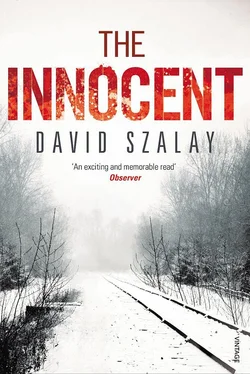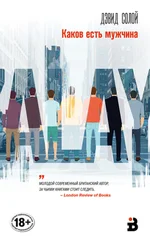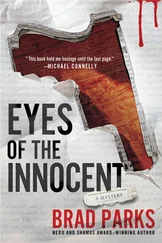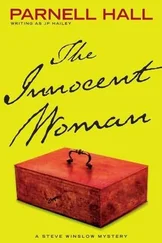My experience of this sort of work was probably why I was sent to interview Yudin in the first place. To prepare myself, I made a summary of his security file. There were a number of photographs in the file, mostly of Yudin himself. He was shortish, stocky and muscular, with dark brown hair and blue eyes. One photograph, taken from the end-of-year album of the Moscow Conservatory, 1939, shows a thoughtful-looking young man, turning his face slightly from the camera, the hint of a half-ironic smile on his lips. A sensitive face, though not a delicate one – the eyebrows emphatic, the nose prominent. Unfortunately, the evidence against this thoughtful-looking young man was strong.
His professor at the Conservatory was Heinrich Haussman, a German married to a Russian woman. He seems to have been a father-figure to Yudin. Often, outside school hours, Yudin would spend time with Haussman and his family. He would spend weekends at their dacha. His enthusiasm for bourgeois German culture, however, seems to have pre-dated his friendship with Haussman. He learnt German at school and spoke it well by the time he arrived in Moscow in 1936. He read German books, and specialised as a performer in the works of J.S. Bach. The file said that ‘he often compares Russian composers unfavourably with German ones, especially Bach’. (And next to the name ‘Bach’ some oaf had written ‘Fascist? Nazi? FIND OUT’.) He wrote an essay called ‘The Meaning of Form and the Form of Meaning in the Music of J.S. Bach‘, which was published in the leading Soviet musical journal in December 1938.
In February 1939 he won first prize in the Tchaikovsky International piano competition. In March he moved into a new flat on Kutuzov Prospekt. In June he went to the Crimea, where he had use of a villa overlooking the sea. He was in the Crimea for most of the summer. Photos from his time there: horsing around by the pool, posing, eating dinner at a long table in the open air, everyone looking tanned and healthy, even the Azerbaijani housemaids. His mother and sisters came to visit. Haussman spent a week there. There was a photo – sad in view of what was to happen – of Yudin, smiling hugely (he had very straight white teeth), with one arm around Haussman and the other around his mother.
In September, he started his recording of the forty-eight preludes and fugues of Bach’s ‘Well-tempered Clavier’. This piece had been recorded only once before, by the Swiss Edwin Fischer in 1936. It was considered desirable that the Soviet Union equal this feat. There was also the prospect of an international market for recordings by Yudin. The final session was on April 6 1940. The following spring, however, the recording was withdrawn. This was done for political reasons – by then the leadership was preparing the country psychologically for a war with Germany, and German music was no longer politically correct. Yudin protested, of course. He appealed to Haussman for help, but Haussman was himself German – and was deported that spring, accused of Fascism and spying, and died during the war in unknown circumstances. This deprived Yudin of his mentor and father-figure – his own father had died years earlier – at a time when his world seemed suddenly to be falling apart. In particular, newspaper articles were appearing denouncing his devotion to German music. German, Germany, Germans, words that in the winter of 1940–41 start to appear more and more frequently in the file.
He entered the army in the late summer of 1941. However, in June, just after the invasion, he had attempted to contact Haussman, sending the letter via a Swiss musician, Albert Zugzwang in Luzern. In this letter he spoke of his desire to leave the USSR, and go to Germany ‘where I have so many friends’. It was intercepted. In any case, Haussman may already have been dead. Then, in April 1942 Yudin wrote, again via Zugzwang, to Rudolf Steglich, a friend of his, a German musicologist and a member of the Nazi party. Like the first letter, this one, which was also intercepted, inquired whether it would be possible for him to go to Germany. He even seems to imply that he would welcome a German victory in the war. In view of this, it was decided to take action, and on May 17 a warrant was issued for his arrest, something not mentioned in the obituaries published several weeks later. Such were the known facts when I went to see him at Metelyev Log in April 1948.
Then, one evening in May, I was summoned to Mikhalkov’s office on the fourth floor of the old MGB building.
Mikhalkov was in with someone so I had to wait for a few minutes, making small talk with his secretary, old Yegorova, who had worked there for a succession of colonels since the twenties. Some civilians in suits emerged from the inner office and left hurriedly. ‘You can go in now,’ Yegorova said. Mikhalkov was sitting at his desk. Sherepin was there too. ‘They want to have a look at Yudin,’ Mikhalkov said, without preamble. ‘I know you don’t think that’s necessary.’
‘No.’
‘You think it’s unnecessary to move him from where he is?’
I said nothing.
‘They just want to have a look at him,’ Mikhalkov said. ‘They want a second medical opinion. That’s what I think. They don’t entirely trust this Lozovsky. One of our long-nosed friends, I presume?’
‘One of our …?’
‘A Jew.’
‘Oh. Yes, I think so.’
Sherepin nodded slowly several times, staring at the floor as though his mind was on something else.
‘What do you make of him?’ Mikhalkov said to me.
‘Lozovsky?’
‘Yes.’
I said I knew him slightly, having spent a week staying with him and his wife, and saw no reason not to trust him. I did not mention his initial failure to tell me about Yudin’s writing. I myself had wondered whether to mention it in my submission. I had to, of course, and I suspect that it was this, this writing, more than anything else, that weighed against him.
ON THE RADIO they are talking about the first test flight of the new Soyuz spacecraft. It was entirely successful, they say. There is a momentary pause, then the next news item. ‘ Prime Minister Major Fidel Castro in a message to the people and leaders of the Soviet Union, which was sent from the aeroplane in which he returned to Cuba following his visit to the USSR, states that …’
He slides one of the old suitcases out from under his bed. The one full of papers – old letters and documents, small photographs, forgotten literary efforts. He is searching for his chess set, and even the minimal exertion of his searching is making him sweat. Like everyone else, he has a sudden interest in the game. Eventually he finds it. The small wooden pieces are wrapped in a sheet of newspaper, and he sees from the text that he has not played since the Caribbean Crisis of 1962. The board is a folding piece of card – or was, until the fold wore out and it fell apart.
In the living room, the radio is still reporting Castro’s message. ‘ … emphasises that the friendship of the two nations has been forged in the thirteen years since the victory of the Cuban Revolution, and is based on the common struggle against US imperialism. The message also refers to the feats of the Soviet people in the political, economic, social, scientific-technical and military fields, which are unprecedented in history …’ He turns the frequency knob until he finds a voice from Reykjavik. Then he lines up the two halves of the board, and puts out the pieces.
There is a little click, as Boris Vasilyevich, playing white, makes the first move of the match. The commentator says, ‘Spassky, pawn to d4.’ Aleksandr moves the white king pawn forward two squares. The radio is silent, except for the occasional soft cough from the audience. Fischer, as has been explained, is not there. Nobody knows where he is.
Читать дальше












